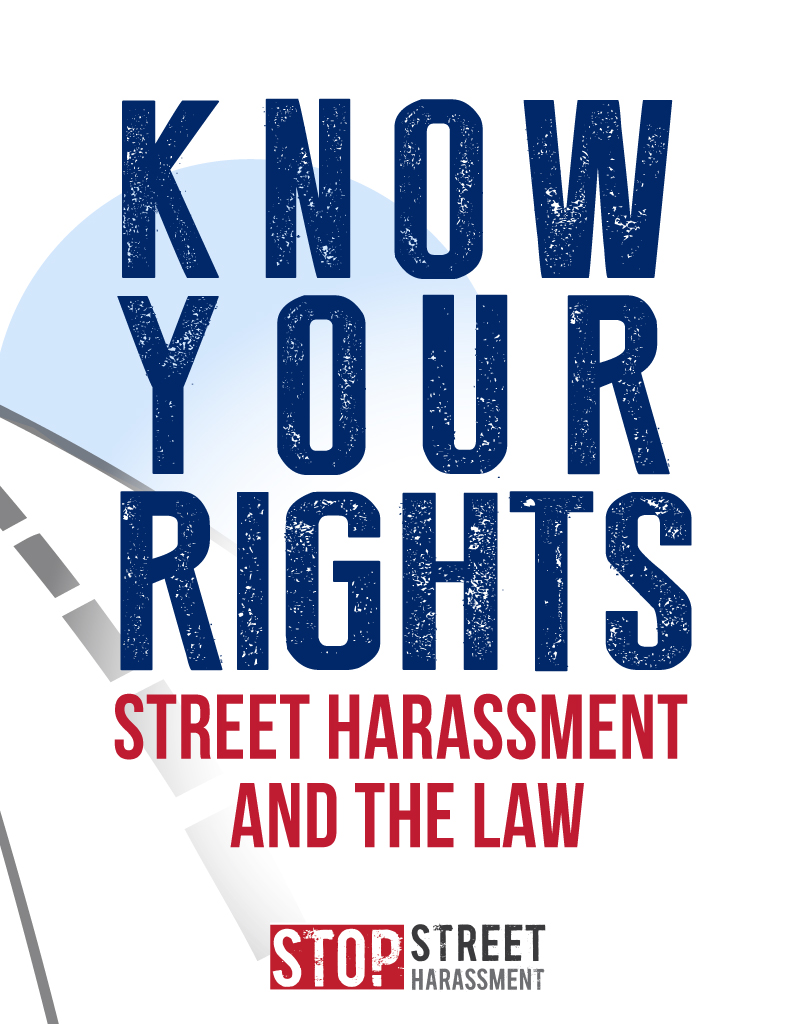 There are several reasons why people may choose not to report street harassment and one of those is the requirement to work with police and other law enforcement officials.
There are several reasons why people may choose not to report street harassment and one of those is the requirement to work with police and other law enforcement officials.
While there are many upstanding, compassionate, and moral police officers (like this one), there is no guarantee that you will have the chance to work with one.
Reasons Why People Don’t Report
Understandably, many people feel reluctant to involve police in minor, or even major, street harassment offenses. There are several legitimate reasons why:
* They may fear that the police won’t respond, or won’t believe them.
* They may fear the police will engage in victim-blaming by questioning their clothing or their choice to be out alone or late at night.
* Some people may feel that their communities are already over-policed and fear that the treatment a harasser will face from police or the justice system will be disproportionate to his or her offense.
* For example, individuals and communities of color often face more severe outcomes from legal processes than their white counterparts.
* Other individuals may fear further harassment from police even when they are victims of a crime.
* Police harassment of LGBTQ individuals is a real and serious issue in many cities around the United States.
At Stop Street Harassment, we believe that however you choose to respond to street harassment — whether you report it, ignore it, or deal with the harasser directly — is a valid choice. If you do want to report street harassment to the police, this guide can help. If you aren’t sure, see our section on Why and When to Report Street Harassment.
When Police are the Harassers
Unfortunately, sometimes street harassment can come from police officers themselves. It can be hard to know what to do in those cases, but you do have options. If an officer is making lewd comments to you, touching you inappropriately, or otherwise making you uncomfortable, the first step is to realize that these actions are not the lawful execution of his or her job: They’re harassment.
If a police officer is harassing you, you have the right to do any of the following:
* Ask for his or her name and badge number. If you decide to file a complaint, this will be important information to include. Write it down or make a note in your phone.
* Walk away. If you are not being detained in relation to a crime, you do not have to talk to an officer. If an officer is speaking to you in a way that is clearly street harassment – such as, “Hey, baby!” or some other catcall, you have the right to walk away. If you aren’t sure if you’re allowed to leave, ask the officer, “Am I free to go?” If s/he does not say no, walk away.
* Record what’s happening. Police officers may try to stop citizens from recording their actions, but you do have the right to film or photograph police officers with your phone or camera. In most circumstances, police cannot confiscate your phone or camera or request to view photos or recordings without a warrant. Police cannot delete your photos or videos under any circumstances. (Unfortunately, that doesn’t mean s/he won’t, but s/he would be breaking the law.)
* Remain silent. If an officer does detain you, you have the right to remain silent. (In some states, you are required to give your name if asked to identify yourself.) Remaining silent is often the best choice, even when you haven’t done anything wrong. Tell the officer out loud that you are exercising your right to remain silent, and don’t say anything else.
* Refuse a search. Police may pat you down, but s/he cannot further search your person, your car, or your home without either your consent or a warrant. If a police officer is harassing you and tries to search you, do not consent to the search. Say calmly and loudly enough for passersby to hear, “I do not consent to this search.”
* File a complaint. For most illegal street harassment, we recommend that you report it by calling the police. But when police officers are the harassers, file a complaint with his/her department. Immediately after the incident, make a note of what happened, including:
* A physical description of the officer(s) involved (eye color, hair color, approximate height and build, age, whether s/he were uniformed or in plain clothes, etc.)
* Where you were and the time of day.
* The officer’s name, badge number, patrol car number, and/or license plate number.
* A description of the incident. Writing down as many details as soon as possible, including what was said, will help you file the most effective report.
You can either call your local precinct or, in some places, file a complaint online. For example, in New York City, visit this page. Ask anyone who saw the incident — whether friends or strangers — if they would be willing serve as a witness. Take down their contact information and include it in your report.
* Contact your local chapter of the American Civil Liberties Union for more resources and support.
It can be intimidating to file a complaint against a police officer, and upsetting that the police aren’t always the protectors we’d like them to be. But reporting police harassment can help hold the department in your community accountable.
